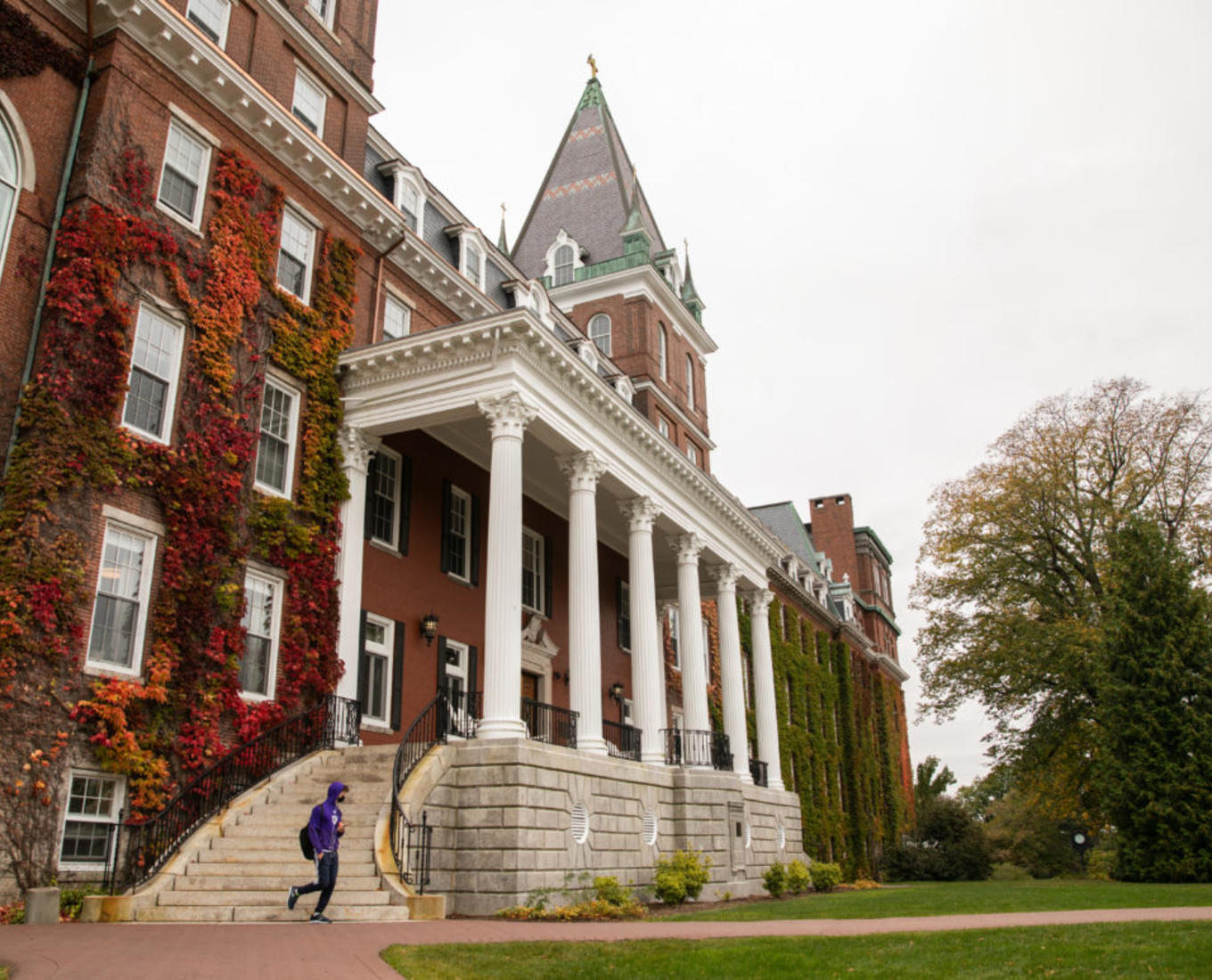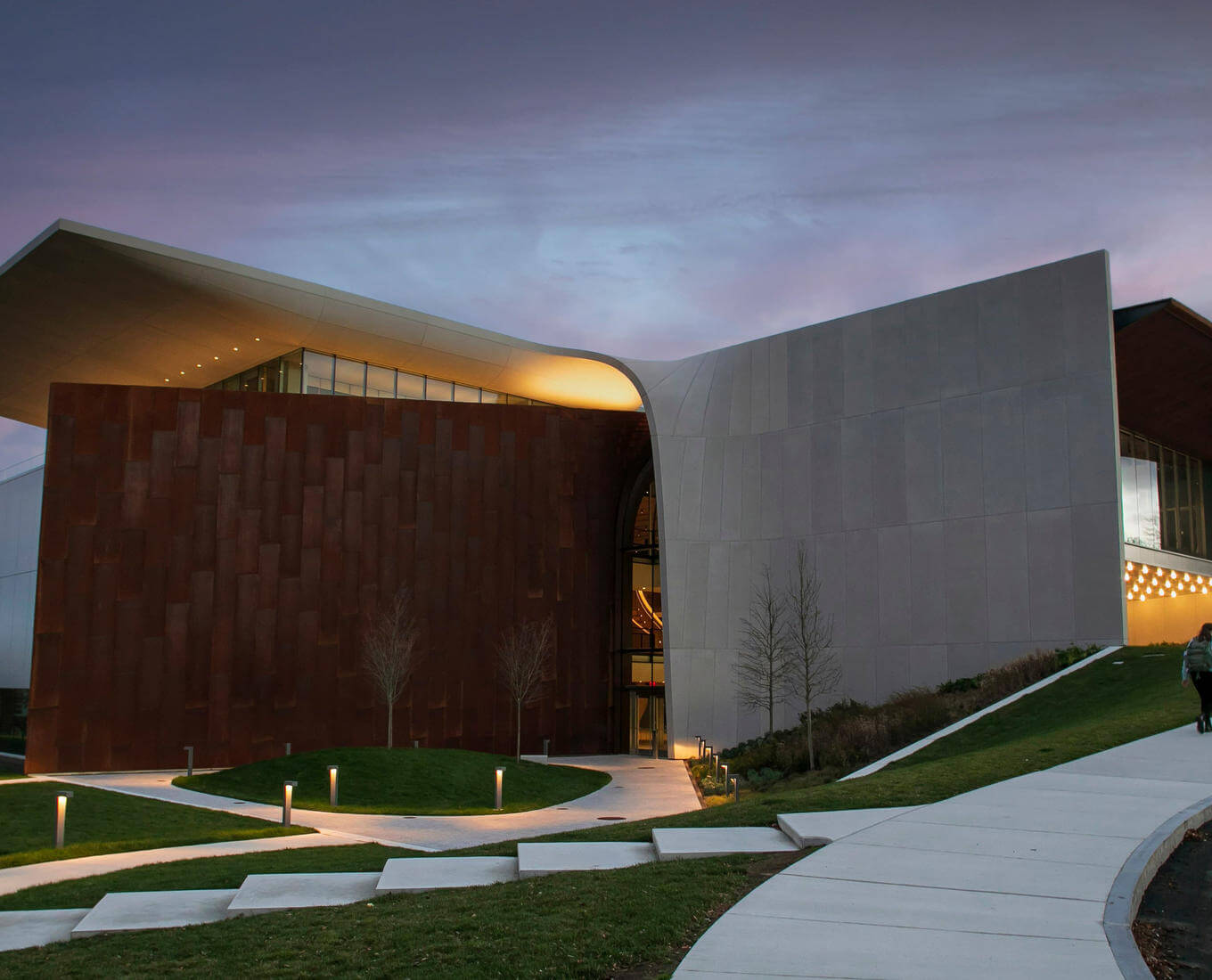Led by Julia Paxson, associate professor and chair for the biology department, and Ken Mills, professor of chemistry and Anthony and Renee Marlon Professor in the Sciences, the Seelos STEM Scholars Program is not a tutoring program or designed to meet academic deficiencies. Rather, it provides a unique first-year research experience, along with support and mentorship from peers and professors, which have been proven to help retain students in the challenging STEM disciplines.
“What we're really hoping for is that these students gain confidence, self-identify as scientists, or at the very least gain agency in what they're doing,” explained Paxson. “We hope that it's a way for them to feel more confident in their first year of college and boost their experience in a way that they wouldn't otherwise. It can be a really powerful way to form community and inform identity.”
Seelos STEM Scholars are not required to major in STEM, though Paxson and Mills find that regardless of what field the scholars enter, they often stay active and interested in research. Many of them return to the program as upperclassmen to mentor the new cohort of first-year students.
“Early research experience really does give a sense of disciplinary identity, which is strongly linked to persistence in STEM majors,” explained Mills. “In our cohorts, we have seen a significant amount of retention in the STEM disciplines. It also helps establish a sense of agency among students, so even if they choose to major in something that has caught their eye outside of STEM, the majority of them made that choice for positive reasons. That sense of agency over their own academic trajectory is aided by the research in the lab, but also by the mentoring they receive in this program.”
The Paxson Lab in action.
The Seelos STEM Scholars Program is named after Redemptorist priest Blessed Fr. Francis Xavier Seelos, CssR, who has long been important to Zamierowskis’ family. But the Zamierowskis have also made this gift in honor of former Provost Margaret N. Freije, Ph.D., whose work was crucial in establishing this program. Freije’s proposal immediately resonated with David Zamierowski, who was once a first-generation student in STEM himself.
“I wish this program had been done for me,” Zamierowski explained. “It took me a long time – 10 years of residency – to settle into what I would ultimately become.”
What he ultimately would become was a plastic surgeon specializing in wound care, with double board certifications in plastic and general surgery, who served in Vietnam and holds more than 50 patents for surface dressings and surgical wound devices he invented. But before that, Zamierowski was a first-generation student from the upper Midwest, who took a few wrong turns and worked through a lot of challenges because he didn’t have the guidance that is so often needed to persist in STEM disciplines.
“It took me a long time to figure out what medicine was about,” Zamierowski said. “I think I made it, I think I made some significant contributions, but I obviously stumbled upon things through incredible good fortune. And because of that, I feel I'm blessed and obligated to give back and provide what I can for our students today.”
“First-generation students need to be mentored and supported at every step along the way – not just initially, not just financially, but with exposure to what the decisions they need to make will mean and what the opportunities are or directions they should take,” he added.
The Zamierowskis’ gift looks to provide the support that students in STEM need to be successful in their disciplines – first-generation or otherwise.
“We are so incredibly grateful for this gift,” Paxson said. “It opens up the doors for us to really explore how we can continue the aspects of the program that we want to retain, and also look forward to other ways to help these students and to help as many students as we can.”
Opportunity and Access to Education
Another way the College is able to provide academic opportunities for students is through the Timothy and Mary Moriarty Scholarship Fund. Thanks to a generous estate gift from Patrick Moriarty, M.D. '57, this $8.735 million endowed fund is the second largest scholarship the College has ever received.
"The Timothy and Mary Moriarty Scholarship Fund is a testament to the power of a Holy Cross education and the enduring impact of our alumni. Dr. Patrick Moriarty's generous gift will open doors for countless deserving students, particularly those who might not otherwise have the means to attend Holy Cross,” said Cornell LeSane, vice president for enrollment management. “This scholarship fund embodies our commitment to providing access to exceptional education and fostering future leaders. By supporting students with financial need who demonstrate academic excellence and leadership potential, we're not just changing individual lives – we're enriching our college and community for years to come."
The Moriarty Scholarship Fund provides Holy Cross the opportunity and flexibility to award need-based and merit scholarships to students who have demonstrated financial need, academic excellence and leadership potential, as well as offers them cultural, intellectual and social opportunities. This gift will fund multiple renewable scholarships a year, with at least one designated for a student from Hampden County, MA.

